Rachel Levine, MD MPH
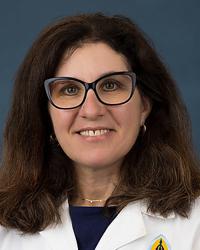
- Associate Dean for Faculty Educational Development
Expertise: Internal Medicine
Primary Location: Johns Hopkins Bayview Medical Center, Baltimore, MD
Calling all Educators
Do you want to build your skills and connect with other educators? The IEE and the Office of Faculty Development are thrilled to announce the Foundations of Medical Education Program! This faculty development series includes 6, half-day workshops offered over the course of each academic year. Each workshop includes interactive content sharing and application of knowledge and skills. You will discuss challenging cases in the Foundations of Educational Leadership, and practice feedback and small group facilitation in the Foundations of Teaching and Learning. In the Foundations of Coaching, Mentoring and Advising, you’ll channel your inner coach/mentor/advisor, learning core strategies to help trainees grow and enhance their performance. As a participant in the Foundations of Educational Scholarship, you will be guided through the creation of your own medical education research proposal. In the Foundations of Curriculum Development, you will be introduced to Kern’s 6 Step model for designing and implementing rigorous educational curricula building. Solidify your understanding of common assessment frameworks and tools in the Foundations of Assessment and Evaluation. Most courses are offered (synchronously) virtually.
Each workshop builds skills in a key domain of educator work and is informed by core competencies within that domain (LINK TO ECMC PDF https://www.hopkinsmedicine.org/-/media/institute-excellence-education/documents/foundational-principles/ecmc-slides.pdf) The workshops can be completed in any order.
Participate in all 6 workshops and you will receive a Foundations of Medical Education Certificate of Completion. All workshops provide CME credit and Johns Hopkins full-time faculty may use their Tuition Remission benefit to cover the registration fees. For more information and to register for courses, please see the IEE website https://www.hopkinsmedicine.org/institute-excellence-education.

Expertise: Internal Medicine
Primary Location: Johns Hopkins Bayview Medical Center, Baltimore, MD
Philanthropy Matters
Thanks to the generosity of partner donors, the IEE Faculty Education Scholars Program has flourished. It is our flagship program for “Inspiring and Supporting Research, Scholarship and Innovation in Education” while fostering the growth and development of junior faculty as educational leaders. We’ve had Berkheimer, Innovation, and international grants at different times over the past decade.
We have published the IEE’s efforts to support scholarship and innovation in education (Cofrancesco J, Barone MA, Serwint JR, Goldstein M, Westman M, Lipsett PA. Development and Implementation of a School-Wide Institute for Excellence in Education to Enable Educational Scholarship by Medical School Faculty. Teach Learn Med. 2018.)
IEE Faculty Education Scholars have gone on to create high quality programs, curricula, and educational platforms, receive additional grant funding, been invited to join prestigious national organizations, and even start new national organizations. In large part due to the work done as a scholar, most have gone on to leadership positions in education.
As but one example among many: Brian T. Garibaldi, MD, received a Berkheimer grant in 2016. He notes that the program was the catalyst for his work in clinical skills education and assessment. He shared his work at the Stanford 25 Clinical Skills Symposium in the fall of 2016, which led to his co-founding and being the first co-president of the Society of Bedside Medicine (SBM), a non-profit dedicated to education, innovation and research on the role of the clinical encounter in 21st century medicine. Brian also piloted an early version of the Assessment of Physical Examination and Communication Skills (APECS) during his Berkheimer award. APECS is one of the only programs in the US where graduate medical trainees examine real patients in front of faculty members and then receive hands-on, personalized feedback to improve their clinical skills. APECS is now the cornerstone of a large AMA-funded Reimagining Residency grant led by Brian which is dedicated to understanding the intersection of the educational environment, clinical skills and professional fulfillment. Brian became a fellow of the New York Academy of Medicine, the American College of Physicians and the Royal College of Physicians of Edinburgh and teaches clinical skills across the world. The initial support of the Berkheimer award made all of these efforts possible.
Investing in education is investing in the future of medicine. Our partners’ and supporters' generous contributions and collaboration allows for continuation of this essential IEE program.
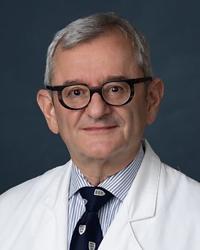
Expertise: Internal Medicine
Primary Location: Johns Hopkins Outpatient Center, Baltimore, MD
Johns Hopkins Initiative for Careers in Science and Medicine
One of the biggest determinants of career success and health outcomes are socioeconomic status. Socioeconomics impact an individual’s opportunities for education achievement, career attainment, household income, and access to quality healthcare. To help solve these problems, we need to increase the educational attainment and career opportunities for young people from socioeconomically under-resourced backgrounds. In so doing, we will not only have impact on the young people, but also on their families and our communities.
To help accomplish this, we created the Johns Hopkins Initiative for Careers in Science and Medicine (CSM; https://csm.cellbio.jhmi.edu/). The CSM provides programs for students (scholars) from 5th grade, high school, undergraduate, and post-baccalaureate levels. CSM scholars must be from socioeconomically under-resourced backgrounds, defined as from a household with incomes <200% of the federal poverty level, and educationally under-resourced, a criterion most often met by being first-generation college and/or by having attended a high school where the majority are also low income.
To date, the CSM has provided opportunities for over 635 scholars (typically 55-75 scholars per year; some participate multiple years and in multiple programs) across five programs: Fun with Science Camp for 5th Graders (FwSC), the Summer Academic Research Experience (SARE; high school), Biophysics Research for Baltimore Teens (BRBT; high school), the CSM Summer Internship Program (CSM SIP; undergraduates), and the Doctoral Diversity Program (DDP; postbaccalaureates). At the 5th grade and high school levels, scholars largely come from the greater Baltimore area. At the later stages, CSM SIP and DDP scholars come from all 50 U.S. States, Territories, and Tribes, and we have had scholars from all domains.
Each program provides stage-specific academic and research-intensive experiences. For example, SARE provides academic fortification in math, writing, science, and bioethics. We also provide education on professionalism, navigating the college application process, financial aid, financial savings and investment, as well as longitudinal, wrap-around mentorship. In addition, scholars have an intensive research experience and then communicate their science in the final poster presentation/celebration event that includes attendees from the Hopkins and greater Baltimore communities.
CSM scholars accomplish big things. Many become authors on scientific publications. For an example of longitudinal outcomes, SARE scholars have a 100% high school graduation rate, 95% college matriculation rate (79% major in STEMM where the second M is medical health professions), and a ≥69% college graduate rate by 6-years post-high school graduation. That compares quite favorably to the national graduation rate of 14% for students from the same socioeconomic background. SARE scholars have matriculated into numerous universities including Hopkins, Yale, Princeton, U. Maryland College Park, Stanford, and many others.
For an example of the outcomes at the later stage CSM programs, 78% of our DDP scholars have matriculated into MD, MD/PhD, and PhD programs all over the country, including at Hopkins, Stanford, Harvard, U. Chicago, UTSW, Baylor, UC Berkeley, Howard University, and numerous others. We have DDP scholars who have completed their master’s degrees and become scientists or entered other professional domains. We even have a DDP scholar who became a Teach for America Biology Teacher – that’s is paying it forward!
All these outcomes are transformative for our scholars, their families, and ultimately our society. I should also point out that CSM scholars are all super-smart, super-motivated, inspired, and inspiring. They are among the most gracious, heart-warming people, and all are driven to make great impact over their careers and lives.
It is truly a pleasure to get to be a part of the CSM team and community. As our scholars say, “CSM for life!”
Postdoctoral Fellows are Often Considered the Backbone of Research
Postdoctoral fellowship is an important phase of a researcher's life as it is the first steppingstone of an early stage of an independent research career. We play a pivotal role in advancing academic institutions, infusing fresh perspectives, advanced basic and applied research, and offering unique expertise. As many aspire to be future academicians, postdocs contribute significantly to the intellectual vibrancy of their host institutions with great enthusiasm.
Postdoctoral fellows bridge gaps between disciplines. Our diverse academic backgrounds foster interdisciplinary collaborations, allowing convergence of ideas to address complex challenges. Postdoctoral fellows serve as mentors and educators, being the frontline of interaction with the next generation of scholars. we have close interactions with graduate and undergraduate students. This mentorship is invaluable, shaping the trajectory of emerging scholars and ensuring a continuum of excellence within the educational ecosystem.
The JHU Teaching Academy (Teaching Academy, JHU) provides various teaching opportunities to postdoctoral fellows. However, time constraints can make participation difficult.
In recent years, we have seen a great shift in the educational environment which is promoting more postdoctoral fellows as educators recognizing our contribution towards educational excellence of the institution. This progressive step also facilitates quality future educators and fuels the career of one of the pillars of the institution in education and research.
Reflections on Advocacy as Medical Student Senate Student Body Presidents
As Student Body Presidents of the Medical Student Senate (MSS), we sit on many curricular committees within the School of Medicine and are members of the IEE Board of Directors. We primarily serve to represent the collective student voice. In this role we are often bridging students’ opinion, administrations goals, and the reality of what can be changed. Navigating these sometimes-conflicting threads can be difficult, but we have learned much from our advocacy efforts and have been honored to partner with faculty and administration to improve the student experience.
As 4th year medical students and Student Body Presidents for MSS, these are our reflections from our time serving on the Senate.
Part of what makes a Hopkins medical student so special is our fire to advocate for change, our drive to build something better. We are only two voices, but it has been the highest privilege to listen and to represent the diverse sea of hundreds of voices that constitute the Hopkins medical student body. We have learned that to advocate, we must listen, we must be patient, we must anticipate, and we must widen our perspectives. We are humbled and thankful to have had the opportunity to grow with our peers, advocate for their needs, and partner in change.
How do you find the time to teach in a busy community clinical setting?
More of our care of patients, and our teaching, has moved to community settings which are often unpredictable learning environments. While many of us derive immeasurable reward and joy from teaching, we must also be honest about the time and effort needed to achieve excellent clinical education. Here are three tips on how to navigate teaching in our fast-paced, volume-based medical practices:
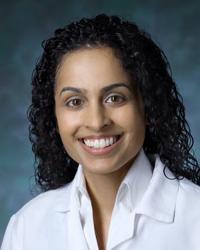
Expertise: Pediatrics
Primary Location: Johns Hopkins Community Physicians - Remington, Baltimore, Baltimore, MD
Why We Should All Care About the Well-being of Faculty Educators and What We Can Do About It
The link between physician burnout and patient care outcomes is the primary driver of efforts to foster faculty well-being by addressing individual and system level factors. Similarly, the well-being of faculty educators is critical for maintaining a supportive, safe, and inclusive learning environment for our students and trainees. The American Medical Association in its 2022 ebook, Educator Well-being in Academic Medicine (https://livejohnshopkins.sharepoint.com/:b:/s/ECMC/EeWdNs77op9GkSwSzL7VRFQB4wQ2sCMAkXQfFmkuNPhDJw?e=leIiMH) describes the features of well-being specific to faculty whose primary effort is education and offers systems-based recommendations to ensure that as faculty educators we can thrive and in turn so will our learners and ultimately our patients.
We are fortunate to work in an environment with many supports for educators. The IEE, the Office of Faculty Development, The Johns Hopkins Faculty Development programs and the Masters of Education in the Health Professions (MEHP) provide opportunities for faculty to develop expertise and be in community with other educators to share ideas, scholarship, and be recognized. And yet, the current climate in academic medicine places increasing pressures on faculty with fewer rewards for those who wish to focus their efforts on medical education.
Here are a few steps we can take to support our faculty who teach and mentor learners, design, implement and evaluate curricula, conduct educational scholarship and lead our educational programs: 1) continue supporting academic promotion of educators based activities done in the domains of education, and at Hopkins using recommendations of the Educator Competencies and Metrics Committee; 2) revise compensation models to recognize and reward the work of educators; 3) ensure that educators are included in decision-making around major SOM priorities and initiatives; and 4) measure educator well-being and satisfaction.

Expertise: Internal Medicine
Primary Location: Johns Hopkins Bayview Medical Center, Baltimore, MD
Our systems for assessing performance and providing feedback to learners is changing with a greater emphasis on providing real-time assessments of directly observed behaviors to learners. These direct observations are intended to provide formative feedback to the learner. Over time, variation in patient presentation, disease and complexity, these assessments should form a portfolio that demonstrates evidence of learner progress, possibly the rate of progress, and area in which the learner may need additional development. For these assessments to be helpful to the learner and easy for the supervisor to complete, they must share a mental model about what constitutes a good and effective performance and what components are needed for the trainee to practice independently.
In Graduate Medical Education (GME) the ACGME (Accreditation Council for Graduate Medical Education) has utilized both “Competencies” and “Milestones” to help describe the abilities of our resident and fellow trainees over time to independent practice. For some, these terms are rather obtuse and not easily applied to every day observations and assessments in the workplace. More recently, Entrustable Professional Activities (EPA’s) have been operationalized as part of assessments in both GME and soon in Undergraduate Medical Education. EPA’s are units of work that a learner performs that can be directly observed. This is in contrast to competencies which are broad domains of ability such as medical knowledge, and milestones, which describe the progress of a learner across a domain from novice to expert. EPA’s are believed to be more applicable to day to day interactions as a supervisor inherently makes a decision with an individual learner how much (or how little) they will need to supervise and/or provide autonomy to an individual learner.
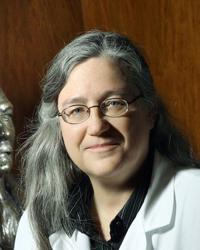
Expertise: General Surgery
Primary Location: The Johns Hopkins Hospital, Baltimore, MD
We are educators and mentors for our trainees across many domains - in the classroom, lab, and life. We are gifted with a rich community of highly inspired and inspiring trainees. We must constantly value this privilege we have with our trainees.
Here are some thoughts:
You may find additional resources through the Institute of Excellence in Education website and by participating in IEE’s Foundations of Teaching and Learning course or the Summer Teaching camp.
What’s are some of the most important things you can do to enhance your learner’s experience early on in their time on your service?
Okay, now that you know how to start, you can build upon this foundation through accessing some of the IEE resources including the Foundations of Teaching and Learning course or the Summer teaching camp.
And (because this IS Johns Hopkins after all) remember that Sir William Osler said “I desire no other epitaph than the statement that I taught medical students in the wards, as I regard this as by far the most useful and important work I have been called upon to do.”
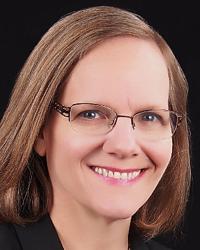
Expertise: Maternal and Fetal Medicine, Obstetrics
Primary Location: The Johns Hopkins Hospital, Baltimore, MD